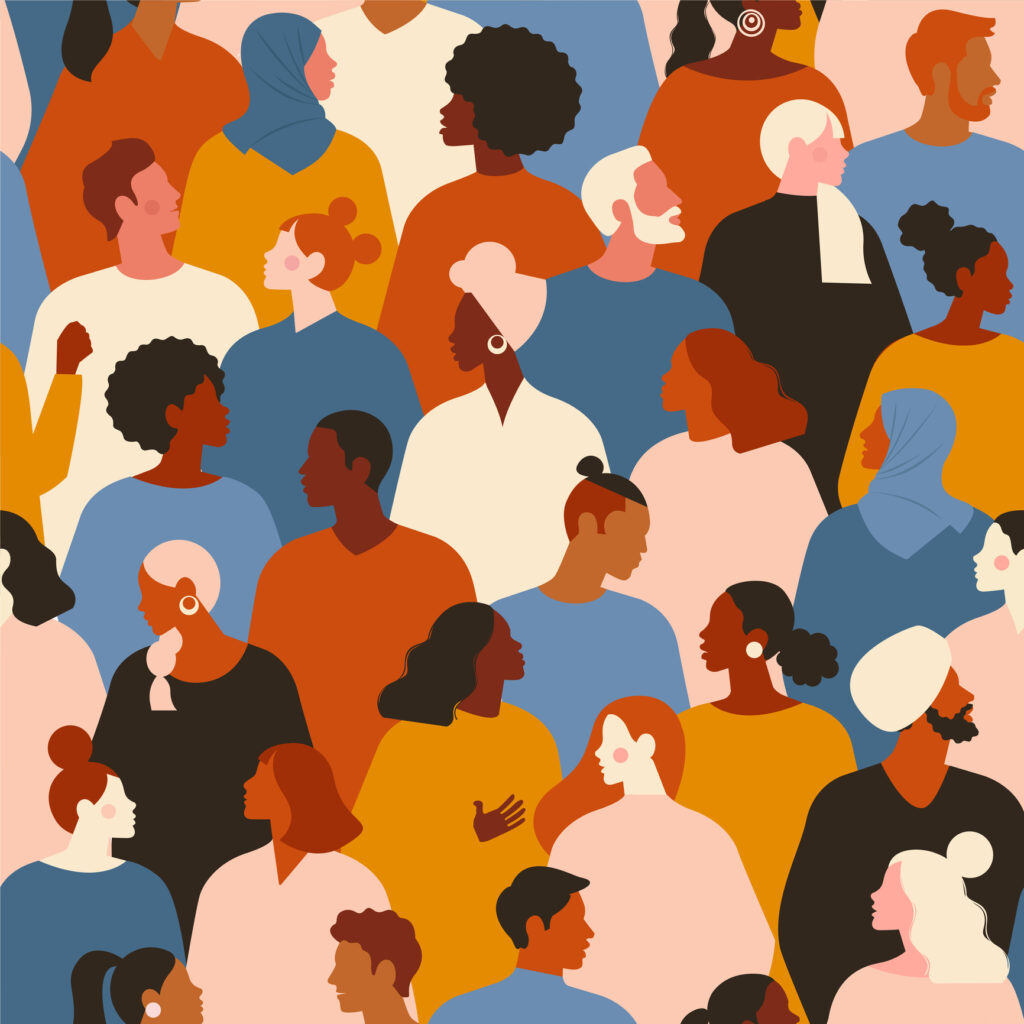A new report from the National Academies of Sciences, Engineering, and Medicine finds that the United States has made little progress over the past two decades in closing remaining gaps in health care equity. Despite spending more on health care than any other developed country, the United States continues to draw racial and ethnic lines in the quality and access of health care. These disparities begin at birth.
Earlier this year, the Lancet journal of Child and Adolescent Health published a study by scientists at Northwestern University, the Ann & Robert H. Lurie Children’s Hospital of Chicago, and several other institutions that found that racial and ethnic minorities in the United States receive poorer quality health care in almost every area than white children, including neonatal care, primary care, emergency care, and surgery.
These trends continue into adulthood: An analysis of KFF’s 2023 Racism, Discrimination, and Health Survey found that Black Americans have a life expectancy nearly five years shorter than white people (72.8 years vs. 77.5 years). Black women are also nearly three times more likely to die from pregnancy-related issues.
The disparities that exist in health care today cannot be explained solely by overt racism and discrimination. Rather, they are the result of a systematic and periodic lack of resources to educate, nurture, and treat those who need these services most. A variety of socioeconomic factors contribute to the large racial and ethnic health care disparities that exist. While the biases of health care providers cannot be ignored, there are other dimensions to this problem that exist below the surface.
Overall, these underserved communities have higher rates of uninsurance, which makes them less likely to receive care when they need it and less likely to have accessible, affordable preventive health care. These people also lack the access to health education and proper nutrition that more affluent communities take for granted. How can we break this cycle and ensure equal access for all, regardless of race, religion, or ethnicity?
Innovative solutions in healthcare, such as telemedicine, have significantly improved access to healthcare across the country and the world. They have significantly reduced the demands on healthcare workers’ time and resources, allowing doctors and nurses to provide comprehensive treatment and care to more patients. This has resulted in a more streamlined, optimized, and efficient healthcare system, and has made healthcare more affordable. While these developments are badly needed to address issues that exist at the patient and physician level, efforts are also needed to get to the root causes of many of these health disparities.
Health is not just about medicines and their access to them. Health is also about proper nutrition, fitness, and understanding your own health status. Many Americans still have no understanding of the transformative power that even something as simple as diet and exercise can have on an individual’s health and medical outcomes. People who eat healthier and live cleaner lives are much more likely to lead healthier lives than those who do not. While this idea seems simple, the access of all members of society to good nutrition and fitness education is one of the largest factors in many of the health disparities that affect us today.
Expanding education through communities empowers individuals with the knowledge to better manage their own health and well-being and to take a more practical approach to health. Through community engagement, the root causes of health care disparities can be addressed and dramatically improve individual health and resilience. By building partnerships that can further advance health initiatives, health and well-being advocates can reduce the frequency of preventable diseases and promote healthier habits and behaviors in at-risk communities.
With the collaborative efforts of health care professionals and active community members, we may soon see these boundaries that have long existed in this country disappear. Long-standing and deeply entrenched health disparities resulting from structural and systemic discrimination can be addressed through grassroots community programs and initiatives aimed at promoting medical innovation and increasing health and wellness education among disadvantaged and underserved populations. When people of color begin to enjoy equal access to health care, proper nutrition, and personal wellness education, the health outcomes of these populations will change dramatically.
Photo: Angelina Bambina, Getty Images
Dr. Bill Releford, affectionately referred to as the “Doctor-Farmer,” is the founder, president, and CEO of The Wound Pros. A healthcare visionary, Dr. Releford blends advanced medical practice with sustainable agricultural insights to improve the well-being of patients and communities. As the leader of The Wound Pros, a premier wound care service, he is committed to health equity and leveraging AI-driven solutions to transform lives around the world. His initiative, Wound Care Without Walls (WCWW), is providing advanced wound care to millions of people around the world, addressing the debilitating effects of non-healing wounds and making a significant impact on global healthcare.
This post has been published through the MedCity Influencers program. Anyone can have their perspective on business and innovation in healthcare featured on MedCity News through MedCity Influencers. Click here to find out how.



